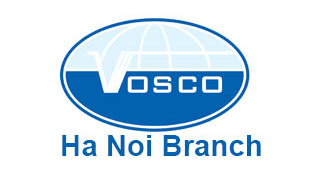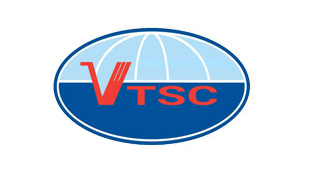 Legal issues when using security team on board.
Legal issues when using security team on board.
Run Strategy
There has been a rapid and significant increase in the level of pirate activity in the last few years when the pirates are increasingly backing, better equipped and able to attack the ships offshore. Message center pirate of the International Maritime Bureau has received notice of 243 attacks on ships, 26 ships have been hijacked alone from 01 01 to 13 06 2011. Obvious failure of the international community in dealing adequately the cause of the problem, or reduce the level of pirate activity has led to the continuous request flag authorities for permission to publish place armed guards on board to protect the ship and crew from the threat may be pirates.
Level so serious that President International shipping office had stated that: "Many shipping companies have confirmed the armament for ships is a necessary solution, than the ship to avoid completely the Indian Ocean, it will cause serious damage to the global commercial activities at this time. " Globalization pressures too big for reform, amendments and guidance led to the International Maritime Organization issued a circular titled: Interim guidance to shipowners, ship operators and shipmasters on the use of private armed security forces on ships passing through high-risk areas. Although this tutorial is in response to and also need much modification, there are still many open questions unanswered.
Use of armed security forces effectively?
There is a common fact that until now, no ships were hijacked successfully on board are arranged guard. Considering the number of shipowners, ship operators and commodity profits are increasing, the use of armed security forces are the most effective measures to combat the threat of piracy attacks in the areas of risk high. Argued to reinforce their conclusion is very simple: stop. It has been proposed that the presence of armed security forces on board to send a clear message to those who are intending to attack that ship and crew have the ability to use these measures strong defense to protect themselves; this greatly increases the perceived risk of an attack on the ship. In such cases, also had argued that the pirates will change the options to attack the ship with a weaker defense, especially in the busy maritime area.
At the same time the use of armed security forces to protect the cargo ship also bring economic reasons. There have been suggestions that because of high levels of safety and security than with the presence of armed security forces, the vessel is allowed to pass through the area are thought to be at high risk of pirate attacks. This allows ships to avoid the time-consuming round distance and the cost of the ship is forced to take in order to avoid high-risk areas (such as the Strait of Malacca and the Gulf of Aden) where greater ability to attack.
Furthermore, the owner and operator of the vessel layout armed security forces on the taucua they are likely to be reduced to 30% premium. Status attack of some vessels may lead to the insurance company may suggest or propose to use armed security forces for small vessels, slow speed when passing through risky waters high pirate attacks.
Concerns about the use of armed security forces
The use of armed security forces on board recently met with considerable opposition internationally. There has been ongoing debate about the appearance armed security forces have the potential for escalating violence in case the ship was attacked by pirates. In particular, there are fears that the layout of the armed security forces significantly increased the risk of incidents of gun battles between pirates and security forces, which can lead to death pirate boat employees and third parties not related to being attacked by mistake. Furthermore, the use of guns in danger of causing serious damage to the ship, cargo and other assets, and in the worst case is sinking.
Comments also suggested that pirates can use the powerful weapons and bring more destruction to the ship and crew to deal armed security forces on board layout. Moreover, notice that some pirates are trained climbing skills on board to respond with armed security forces. Therefore, the decision to use force to protect will only take place after careful consideration on the impact of the use after risk assessment and implementation of all safeguards previously drafted full discussion with the captain.
The legal issues
There are a number of complex legal issues and business risks that the parties should understand before you decide to arrange armed security forces. Should consider carefully the following issues:
In the circumstances, the security forces used force armed with pirates?
Currently there is no international convention or regulation which clearly can legally use any kind of force or measures to combat pirate attacks. As a result, in international waters, the rules governing the use of force will be the government of the flag and the captain, crew and security forces must follow at all times. Under the guidance of the IMO recently published, the owner or operator of the vessel to consider layout decisions armed security forces on board, you should seek advice from the flag administration to ensure that any kind of legal procedures can be met.
On the ship, armed security forces must be limited to the clear provisions on the use of force (Rules for the Use of Force - RUF), which must be presented in clear terms and measures to proceed in the event of piracy attack. The regulations must make a plan to respond to pirate attack in detail and classified in detail as part of the process activities of the security forces, with the goal of preventing the pirates on board that only the minimum use of force. In particular, the guidance of the IMO about RUF states that do not use gun to humans except for self-defense or to protect others, to avoid the threat imminent death or serious bodily injury, or to prevent serious crimes important life-threatening. In addition, to ensure that RUF follow the rules of the flag administration and ideally should be approved or endorsed the flag from the government.
The key issue is to comply with the RUF armed forces and the law of the flag State administration in the face of attacks by pirates. Also, in the territorial waters should comply with the national laws of the port and the beach. The risk of non-compliance is evident: in the case of death or injury is not legal, security forces at risk flag or other national authorities with jurisdiction on charges of murder or injure serious analysis. In areas such as the Strait of Malacca, the illegal use of force to defend against pirate attacks in the region have the ability to put the security forces on the situation judge guilty in Singapore, Indonesia or Malaysia , depending on the position of the ship at that time. In addition, there is a risk that the captain, protect companies or other parties can be prosecuted as co-conspirators in the case of armed security forces causing any casualties illegal.
Coordinate direction
Both the SOLAS Convention and the ISPS Code provisions Captain has the highest authority and responsibility for the safety and security of the ship. However, armed security forces may wish to arbitrary use of force without the permission of the Captain if their personal assessment, is necessary for self-defense. This may be the case when they do not get or can not get the command of Captain. Armed security forces also want to be able to preserve the right of self-determination so that they are not forced to use force in case of Captain ordered them to do so.
Thus, there is a certain tension between the potential demand of the security forces on the degree of control and autonomy in their use of force and regulate the Captain has the final authority and responsibility for ship. Although IMO guidelines require a command and control structure in writing to be included in the statement "at all times, Captain is in command and maintain the rights over", the request Protocol on the early action and response to the threat needs to be security companies, shipowners and ship operators negotiate carefully, then clearly the content achieved in the text carry contract and the enforcement process.
Licensed to use weapons
The laws governing the carrying and use of weapons in a number of countries are complex and violate the licensing laws, weapons will likely face serious criminal and civil penalties important. Based on the fact that the international concern about the increase in arms, arms that could eventually be used in the crimes, terrorism or civil war, the company should carry out the move very cautious. Getting the proper legal advice is also essential to ensure the security personnel are armed and owns weapons permits and obtain the necessary approval for the ownership and weapons used by the rule of law for each trip. Also need to be wary of the possibility of ship itinerary changes (eg: ship needs repair or supply of materials), this can take a train into the territories with the new legal provisions that permit weapons is no longer appropriate.
Other security measures
Bearing in mind that armed security forces should be used rather than replace other security measures. Following the risk assessment to evaluate the possibility and consequences of pirate attacks on ships, also need to consider protective measures should be implemented. Best management practice guide was published with the data due to the large shipping companies and provide naval forces have proposed a number of measures taken to protect the vessel and minimize the risk of being robbed maritime threats including use of barbed wire, anti-stick, water spray and foam spray gun. Moreover, on some ships, may consider using electric fences, or building "safe haven", a ship built inside the area where the crew is protected from attacks by pirates .
The shipowner should consider registering with the organization haiUK trade and maritime security center - the horn of Africa region. These organizations support and provide information about the maritime industry and the specific work when combined with naval forces in high-risk areas to minimize the risk of pirate attack
Selected security companies
Due to the lack of regulation and licensing of maritime security companies today, there are many concerns about the ability and stability of the security company and the venture industry. However, both the IMO and the P & I has provided guidance for shipowners and ship operators in choosing the company to protect. Hopefully this guide will serve as the minimum standards for maritime security and encourage existing operators to ensure their processes to meet this standard.
The security company should commit to complete the review of the staff (including information related to the crime) and to ensure that the security forces are appropriately trained, licensed and license received on the use of weapons in all the maritime environment as well as full coverage for themselves, their employees and third-party liability. Similarly, it is important that the owner and operator of the vessel only hire reputable company, is implementing appropriate processes to rigorous screening and training of their staff and can prove that they have fully accepted and licenses needed to deploy armed security forces.
Between shipowners, ship operators and security companies, should consider carefully the role and the use of armed security forces on board. In particular, the role and presence of the security forces should be included in the security plan on board after discussion with the Captain. Moreover, the need to ensure that all parties are aware of and comply with all instructions of flag authorities and relevant international, especially pay attention to fully comply with the guidance of IMO and BMP3.
Nguyen Khanh Hang, Nguyen Huyen Trang - The SQM.
Translate from: www.clydeco.com






















